SMB Sales Strategy: 10 Tips for Selling to SMB Customers
Casey O'Connor
Selling to small and medium-sized businesses (usually referred to as “SMB sales”) requires a specific approach and skillset. Customers in these markets have needs that are much different from those of enterprise companies.
Although many sales reps shy away from SMB sales (because they believe the payoff isn’t worth the effort), this market can actually be quite lucrative.
The reality is that 99.9% of all businesses in the U.S. are considered SMBs — virtually the entire market. If you can master the SMB sales process, it’s almost impossible for it to not be profitable.
In this article, we’ll go over everything you need to know about SMB sales, including how they differ from other types of sales, how to implement an SMB sales strategy, and some best practices for deploying SMB sales processes with your team.
Here’s what we’ll cover:
- What Is SMB Sales?
- Small Business vs. Mid-Market vs. Enterprise
- Benefits of Selling to SMBs
- Challenges of Selling to SMBs
- How to Implement an SMB Sales Strategy
- 10 Tips for Selling to SMB Customers
What Is SMB Sales?
SMB sales is simply the act of selling products or services to small or medium-sized businesses.
This market subset is more commonly called “SMBs,” and generally refers to businesses of the following sizes:
- Small: 100 or fewer employees
- Medium/Mid-Market: 101 – 1,000 employees
Although these numbers are more or less universally accepted across industries, it’s important to note that number of employees is not a hard-and-fast rule when it comes to defining what constitutes a “small” versus a “medium” business. The U.S. Small Business Administration, for example, also uses annual receipts as one of its criteria for defining businesses.
SMBs are usually local businesses or new startups. These organizations have unique needs and challenges, meaning that reps in SMB sales need to master a specific approach if they want to tailor their pitch appropriately for this market.
Small Business vs. Mid-Market vs. Enterprise
Small business, mid-market, and enterprise sales are all common business classification terms. But how do they compare? Let’s look at some of the differences. 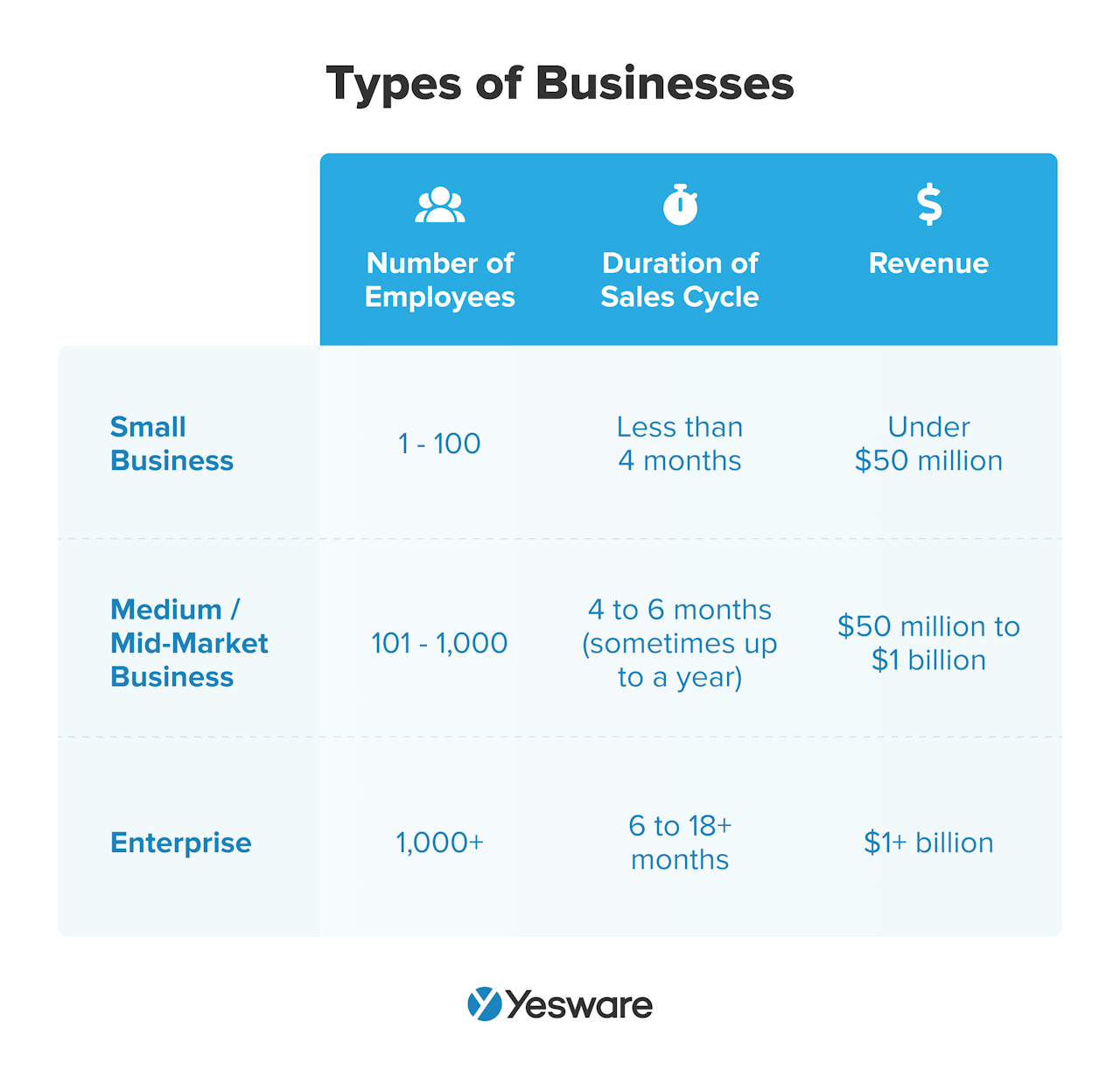 Small Business
Small Business
- Number of Employees: 1 – 100
- Duration of Sales Cycle: Less than 4 months
- Revenue: Under $50 million
Medium/Mid-Market Business
- Number of Employees: 101 – 1,000
- Duration of Sales Cycle: 4 to 6 months (sometimes up to a year)
- Revenue: $50 million to $1 billion
Enterprise
- Number of Employees: 1,000+
- Duration of Sales Cycle: 6 to 18+ months
- Revenue: $1+ billion
The buyer’s journey will also vary for each of these different types of companies, including the number of decision-makers and stakeholders involved in the process. And, to that end, the sales tactics and strategies you use to close deals will also similarly vary.
Remember that these are only general guidelines. Not every business will fit neatly into one of these boxes. This is simply a framework for thinking about how businesses are generally categorized.
Benefits of Selling to SMBs
Many salespeople make the mistake of foregoing SMB sales in favor of more complex but more profitable (at least seemingly) enterprise sales.
Reps who choose that route are leaving a lot of money on the table. SMB sales do require a unique and targeted approach, but the benefits can be well worth the effort.
Shorter Sales Cycle
SMB sales usually require a shorter sales cycle than those of larger companies. This means that salespeople can reach more prospects in a shorter period of time, which creates the potential for higher revenue than could otherwise be achieved with businesses with more complex sales processes.
Simpler Communication
There’s typically less red tape and bureaucracy involved in SMB sales. Decisions have to pass through fewer filters and stakeholders, and the chain of communication is usually limited to one or two people at the prospect’s organization.
Faster Lead Generation
There are over 33 million small and medium businesses in America, accounting for over 99% of all organizations. This means that sales reps have an absolutely enormous pool of leads from which to prospect. If you can optimize the process, lead generation in SMB sales can be fun, exciting, and highly rewarding.
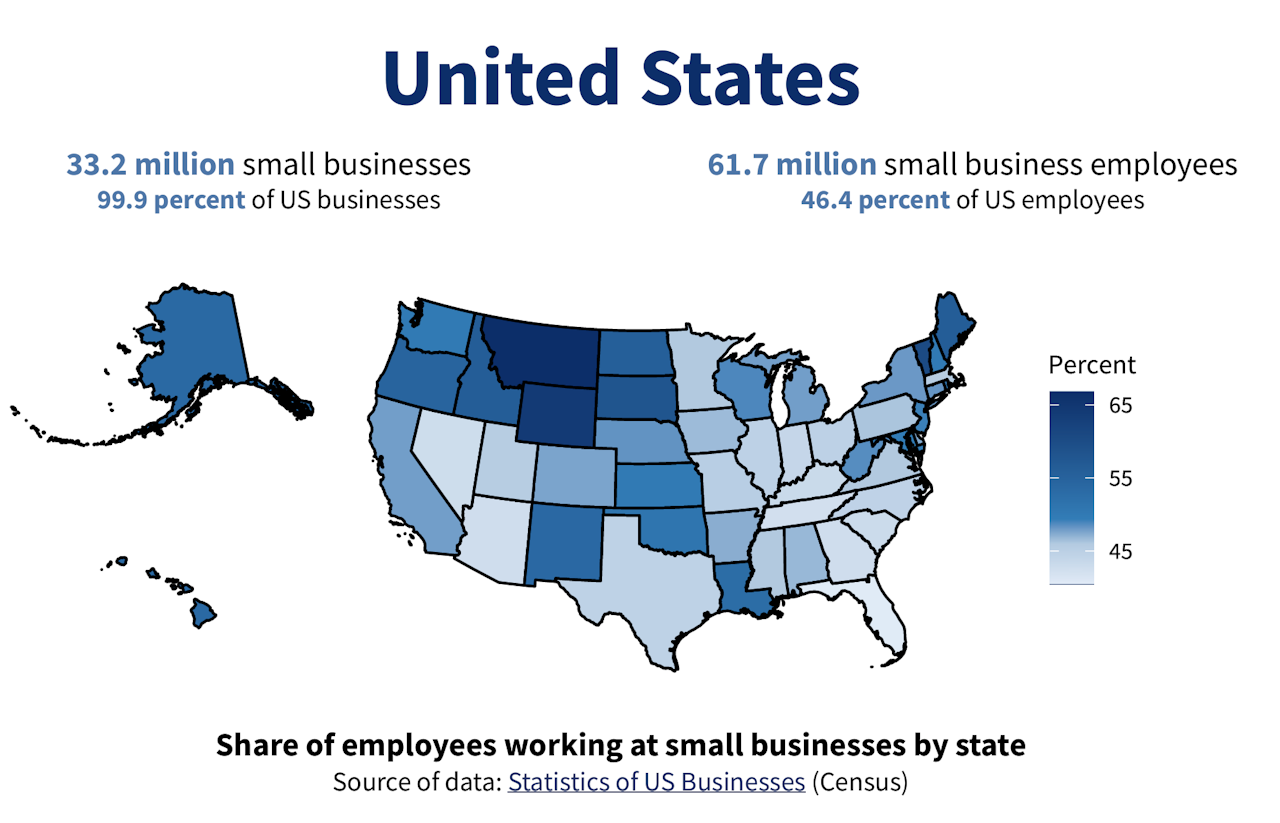
Ongoing Relationships
The nature of SMB sales — if you’re approaching them correctly, that is — allows for very close, loyal relationships. SMB sales can create long-term relationships with clients that lead to reliable, sustainable profit.
And, in some cases, those loyal clients will scale and grow their own success. If you do your job correctly, you could stand to benefit from that success and growth, as well.
Great Word of Mouth
SMBs have a strong word-of-mouth culture. Smart sales reps leverage this by fostering a strong referral network among their prospects and clients.
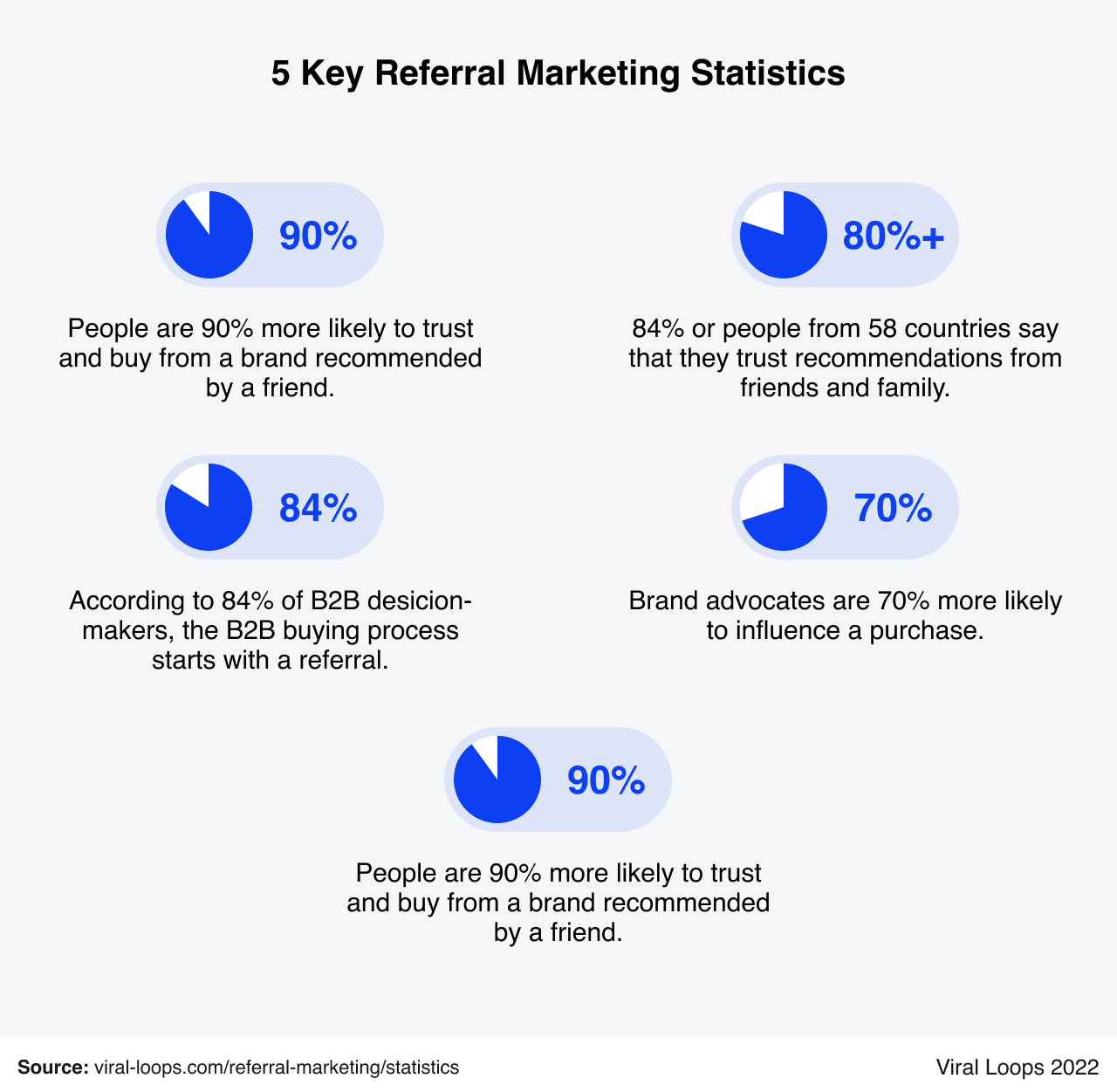
Referrals can be extremely lucrative:
- They generate 25% higher profit margin than sales generated from other channels.
- They’re 18% more loyal than customers acquired from other sources.
- They’re 4x more likely to make further referrals.
SMB sales naturally lend themselves to referrals, which can amplify a sales rep’s success.
Challenges of Selling to SMBs
All that being said, that’s not to say that SMB sales is not necessarily easy, or always straightforward. There are a handful of challenges in this field of sales that reps should keep in mind.
Less Access to Resources
Small and medium businesses, by definition, have less access to cash and will likely be working with a smaller budget. They don’t have a lot of money to spend on heavy customization or deluxe packages. Don’t be surprised if you encounter strong financial objections.
They also generally have fewer resources overall. CEOs are often the primary decision-makers, and their time is already spread extremely thin as it is. It can be hard to pin down the person who plays all of the roles at once.
Deals Are Scrutinized
With that in mind, SMB sales reps should be prepared for tough sales objections and skepticism throughout the sales process. Small and medium businesses do not have time or money to waste; any single mistake could potentially be costly enough to be fatal.
Expect prospects to have a lot of questions and possibly even pushback as they learn to trust you and the potential ROI in purchasing your offer.
Transaction Size Is Smaller
Most SMB sales have a smaller profit margin and generate less overall revenue for sales reps.
If your lead generation and qualification strategies aren’t optimized, this can sometimes make it feel hard for sales reps to meet their sales quota or the team’s overall sales goals.
Tip: Improve sales performance with the data-backed findings and best practices below.
 Sales Engagement Data Trends from 3+ Million Sales ActivitiesLooking at millions of tracked email activity over the past few years, this ebook is filled with our top studies and findings to help sales teams accelerate results.
Sales Engagement Data Trends from 3+ Million Sales ActivitiesLooking at millions of tracked email activity over the past few years, this ebook is filled with our top studies and findings to help sales teams accelerate results.
How to Implement an SMB Sales Strategy
If you’d like your team to start implementing a stronger SMB sales strategy, the following steps can help you get started.
1. Talk to Your Current SMB Customers
If you currently have any customers that fit into the “SMB” category, interview them first to find out what’s working best for them about your product.
It’s also important, though, to find out more about what worked (and didn’t work) for them during the sales process itself. What attracted them to you in the first place? How did your sales team earn their trust? What factor “sold” them on your offer throughout the process?
2. Develop ICP and Customer Persona
Once you know more about the kind of SMB that’s best fit for your product, it’s time to build a template around those ideals.
Sales and marketing teams should work together to create two documents: an ideal customer profile (ICP) and a buyer persona. 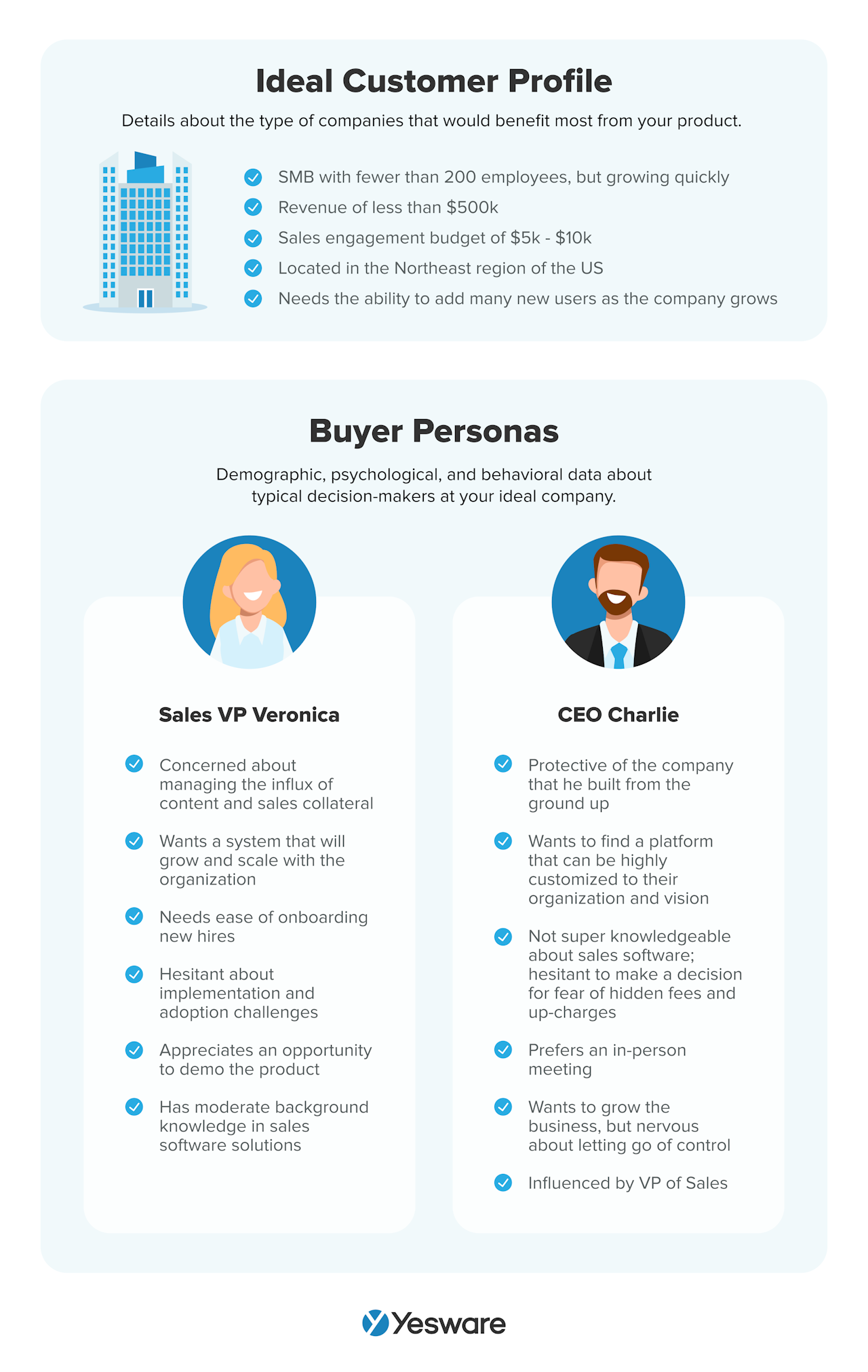 These profiles will help sales teams identify and qualify great-fit leads.
These profiles will help sales teams identify and qualify great-fit leads.
3. Map the Buyer’s Journey & Build Your Sales Process Around It
Now that you have a snapshot of what kind of customer you’re selling to, you can start to customize your sales process to fit their needs.
As you map out the specifics of your SMB sales process, make sure you’re using the SMB buyer’s journey as a reference point. 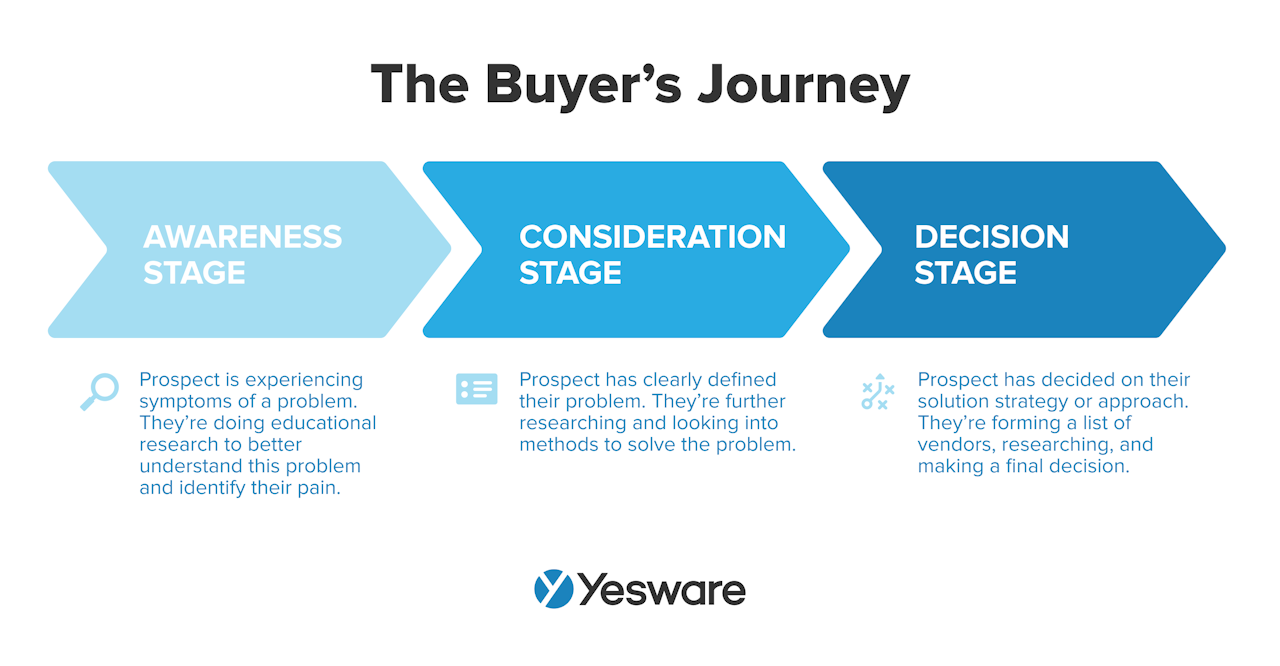 Remember, SMB sales need to be highly personalized and customer-centric.
Remember, SMB sales need to be highly personalized and customer-centric.
4. Begin the Lead Generation Process
As you begin the SMB sales process, you’ll need to run several iterations of the sales cycle (and collect data along the way) before you know how effective your initial efforts have been.
Work with marketing to develop your first round of campaigns targeted at your ICP, and go from there. Take careful notes on the lead generation and qualification process.
5. Optimize the Sales Cycle
As with everything in sales, make sure you’re collecting thorough data on the process and its results, and tweak accordingly. SMB sales is a dynamic field and requires salespeople to be reflective and adaptive throughout the process.
10 Tips for Selling to SMB Customers
Here are some of our best tips for selling to SMB customers.
1. Make Your Pitch Easy to Understand
In many cases with SMB sales, reps will be talking directly to the CEO (or another very high-level employee). In other words, they may not have the same technical knowledge you do (or that some of your specialized enterprise buyers might).
Make sure you keep your sales pitch simple and easy to understand in real-world terms. Communicate more about how you can meet their specific needs rather than the ins and outs of specific product features.
2. Reduce Risk Whenever You Can
Small and medium businesses are risk-averse whenever they can afford to be. Starting a business is inherently risky, so every purchasing decision needs to be carefully considered and mapped out to mitigate that.
To combat this, sales reps should be prepared to do what they need to do to alleviate fear. This might mean offering incentives like free trials, payment plans, and money-back guarantees to ease worries about finances.
Sales reps can also use sales tools like case studies and testimonials, which are both powerful forms of social proof that can also help add feelings of safety to the buying process. 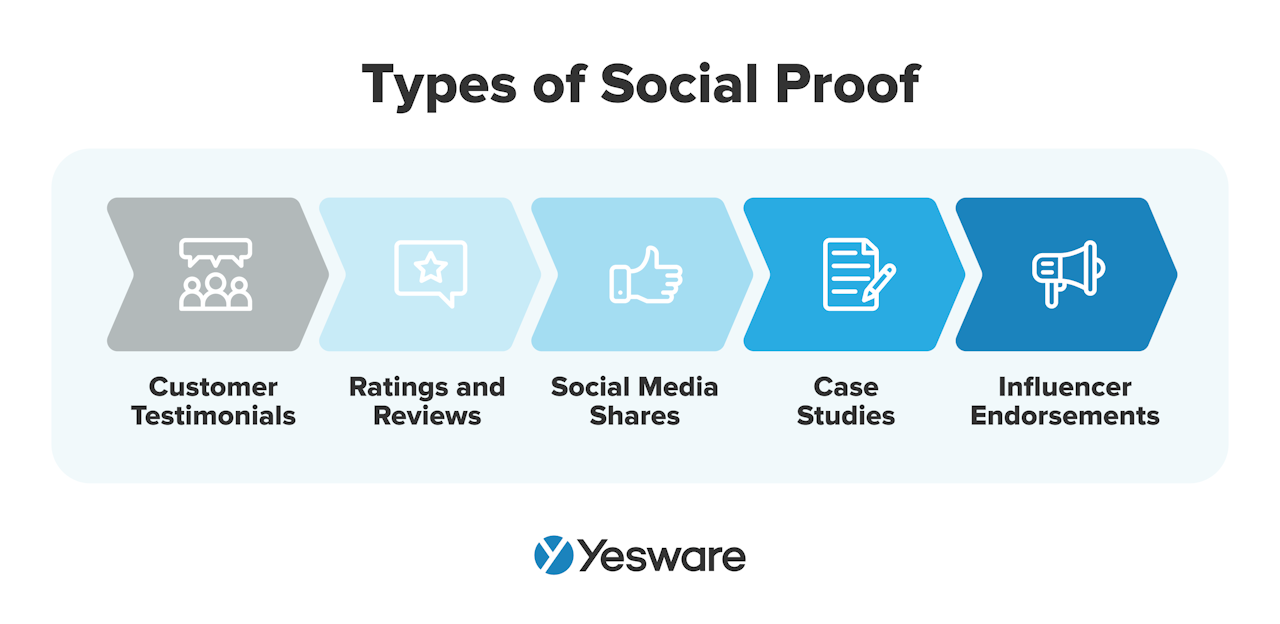
3. Build Trust and Rapport
Sales reps know that most enterprise sales require a great deal of personal relationship-building, as well as intricate knowledge of the inner workings of a large and complex company.
SMB sales, believe it or not, require the same attention to personal detail. These deals are closed primarily through trust and connection.
4. Qualify Your Leads
The naturally large pool of SMB leads is a double-edged sword. Although it makes for “easy pickings” for sales reps, it also means that they need to be extra careful in qualifying which prospects move further down the pipeline.
With a smaller payout at the end of the sales process, sales reps need to make sure that each SMB prospect that moves through the sales funnel is well-qualified for the product. No time can be wasted on bad fits.
5. Follow Up Often
It’s well-known that most sales require more than four follow-up emails, yet somehow many sales reps still find it challenging in practice. 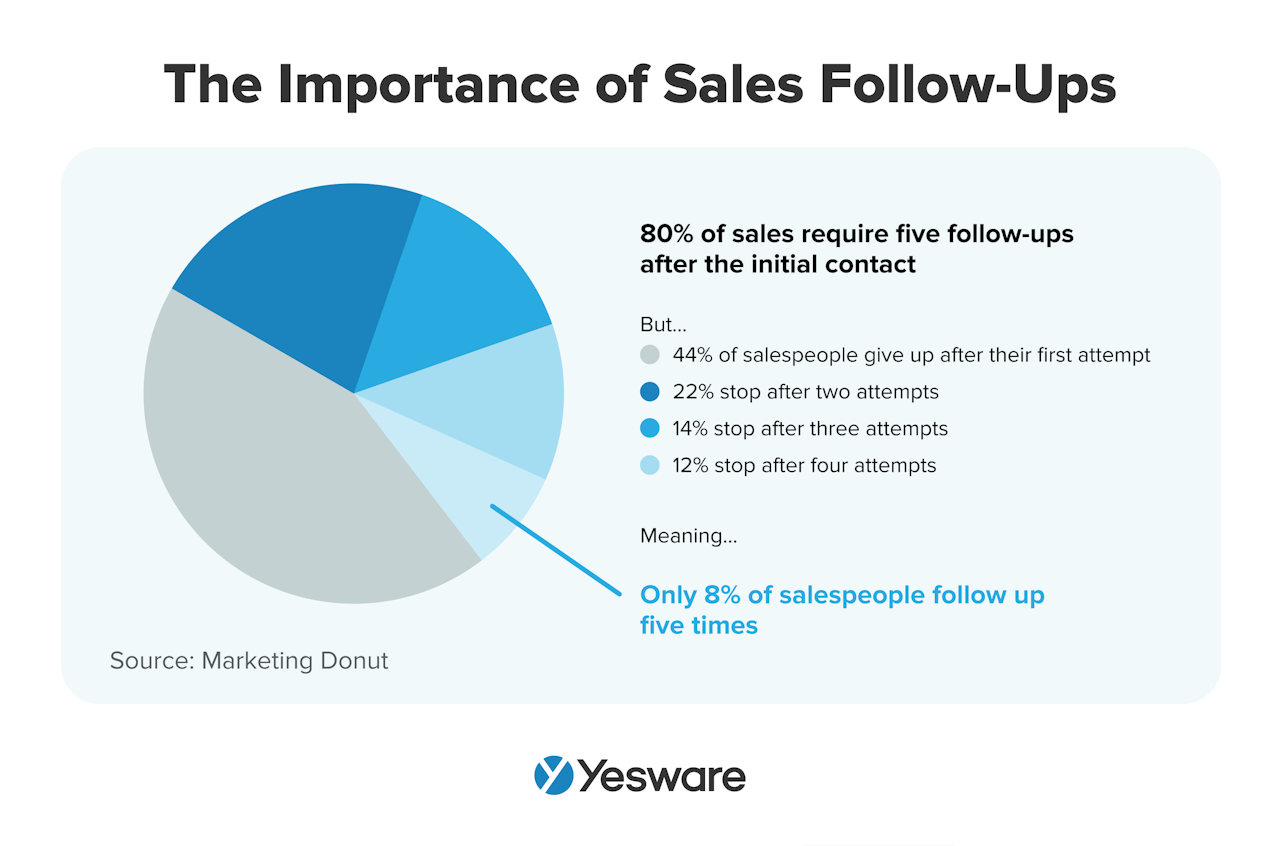 SMB sales are no different. Make sure you’re following up (with value) on a regular basis. Especially with startups and small businesses, “no” doesn’t always mean “definitely not” — it often simply means “not right now.”
SMB sales are no different. Make sure you’re following up (with value) on a regular basis. Especially with startups and small businesses, “no” doesn’t always mean “definitely not” — it often simply means “not right now.”
Time moves quickly in the start-up world, so stay on top of this easy sales task.
Tip: Automate your follow-ups with this free tool.
Focus On Customer Experience and Success
Remember: most small and medium businesses are hyper-aware that they can’t afford to make a bad purchasing decision. They need to ensure that whatever product or service they choose will work for the long haul.
Sales reps can prime prospects for a great experience by ensuring the sales process revolves around the buyer. The process should be customer-centric and focused on their unique needs. And make sure your customer success team is prepared to deliver an equally personalized experience.
Know Your Prospects’ Goals
While it would be incredible if every SMB sale you closed went on to become a Fortune 500 company, the reality is that that’s not always the case.
Not every small or medium business wants to grow to the enterprise level, for one, and the harsh truth is that only 25% of new businesses make it to 15 years or more.
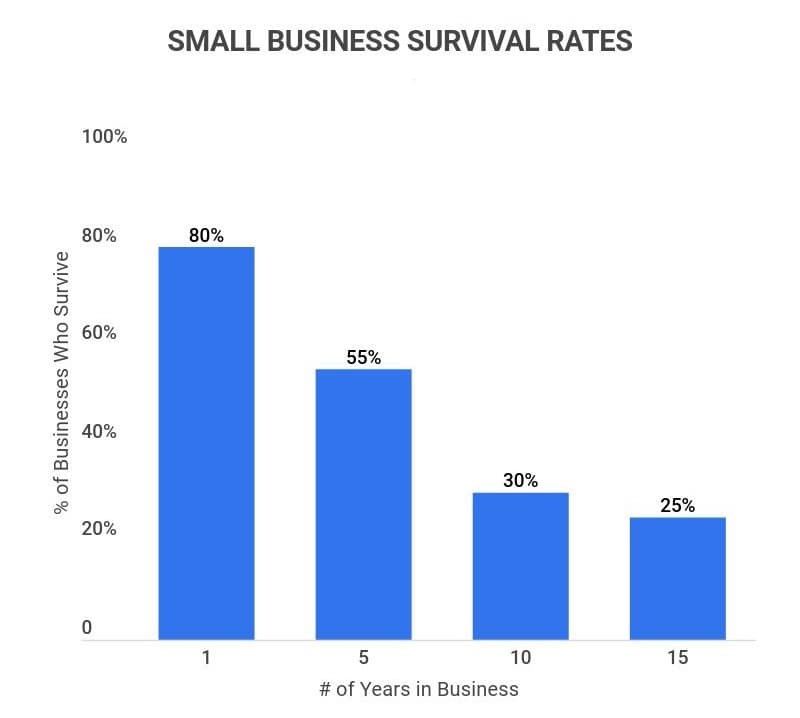
To that end, avoid focusing solely on the prospect’s potential growth. Instead, take the time to find out what, exactly, the prospect hopes to achieve.
When in doubt, most small and medium businesses are always looking to improve efficiency/productivity, decrease costs, and grow revenue.
Take a Consultative Approach
SMB sales reps are often well-served by a consultative approach to sales. By taking the position of an expert, sales reps can help reassure wary SMB buyers that they are in good hands with your organization. 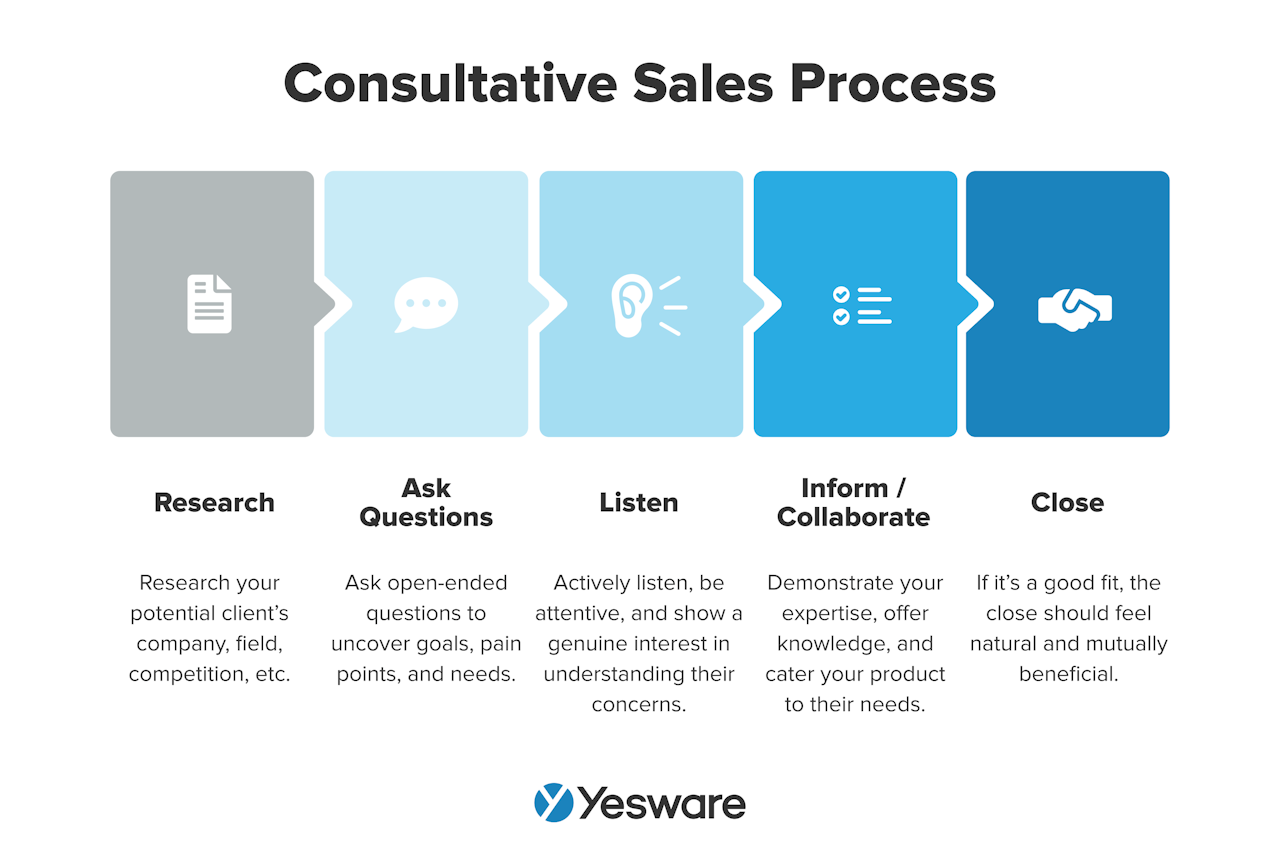 Just be careful to avoid overly-technical jargon or demonstrations. Focus on ease of use and access to expert support.
Just be careful to avoid overly-technical jargon or demonstrations. Focus on ease of use and access to expert support.
Qualify Your Leads Ruthlessly
SMB leads come in all shapes and sizes; with that in mind, your sales team’s qualification process needs to be thorough, systemized, and consistently fine-tuned for accuracy. Remember, SMB may say “no” for any variety of reasons — including “not right now.”
Anything from company demographics to timing to budget could be off, so make sure you sort leads into categories based on who’s a “no” forever and who needs a follow-up in a few months.
Leverage the SMB Referral Network
You’d be surprised at how interconnected the startup world is, even across markets and industries. There’s a tremendous amount of networking that goes on, so make sure you have a strong referral program in place — including incentives for current customers who successfully refer new ones.
Does your team have an SMB sales strategy? How effective is it? How was the process of getting it off the ground?
Get sales tips and strategies delivered straight to your inbox.
Yesware will help you generate more sales right from your inbox. Try our Outlook add-on or Gmail Chrome extension for free, forever!
Related Articles
Casey O'Connor
Casey O'Connor
Casey O'Connor
Sales, deal management, and communication tips for your inbox

